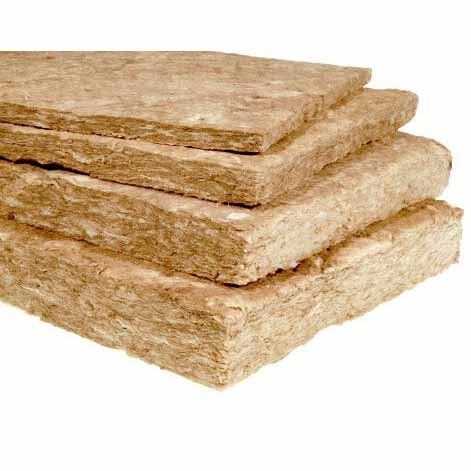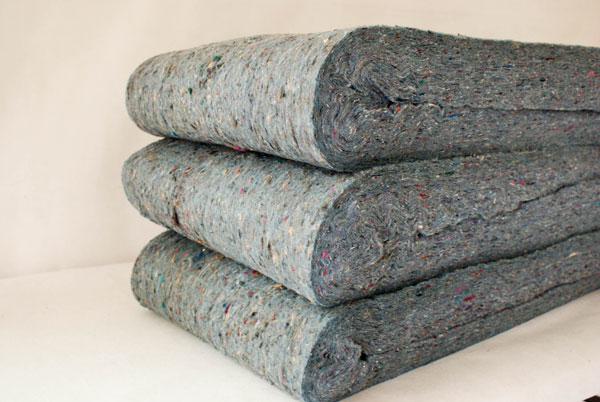Soundproofing insulation helps reduce noise from entering or leaving a room. The best type depends on specific needs and circumstances.
Soundproofing insulation is essential for creating a peaceful environment. Whether you live in a bustling city or have noisy neighbors, reducing unwanted noise can significantly improve your quality of life. Different materials and techniques can be used for soundproofing, each with its own advantages.
Understanding these options will help you choose the best solution for your space. This blog will explore the top soundproofing insulation types and what makes them effective.

Credit: www.soundproofingstore.co.uk
Introduction To Soundproofing
Soundproofing is essential for creating a peaceful environment. Whether you’re at home, in an office, or in a studio, reducing noise can enhance comfort and productivity. Understanding soundproofing begins with knowing its importance and the materials used.
Importance Of Soundproofing
Soundproofing helps to block unwanted noise. It can improve sleep quality. It reduces stress levels. In offices, soundproofing boosts concentration. It ensures privacy by keeping conversations private. This is vital in medical or legal offices. For musicians, soundproofing creates a better recording environment. It captures clear, high-quality sound.
Common Soundproofing Materials
Several materials are used for soundproofing. Each has unique benefits. Acoustic panels are popular. They absorb sound waves. This reduces echo and noise. Another option is mass-loaded vinyl. It’s a dense material. It blocks sound transmission effectively. Foam mats are also useful. They are affordable and easy to install. Fiberglass insulation is another choice. It fits well in walls and ceilings. It provides excellent noise reduction. Lastly, soundproofing curtains are practical. They are thick and heavy. They block out external noise.

Credit: westcountyinsulation.com
Types Of Soundproofing Insulation
Soundproofing insulation is essential for creating a quiet and peaceful environment. Different types of insulation materials are available, each with unique properties. Let’s explore two popular options.
Fiberglass Insulation
Fiberglass insulation is a common choice for soundproofing. It consists of fine glass fibers. These fibers trap sound waves and reduce noise transmission. This material is lightweight and easy to install. It also offers good thermal insulation. Fiberglass insulation is often used in walls, floors, and ceilings. It is also fire-resistant, adding an extra layer of safety. The cost is relatively low, making it a budget-friendly option.
Mineral Wool Insulation
Mineral wool insulation, also known as rock wool, is another effective soundproofing material. It is made from molten rock or slag. The fibers in mineral wool are denser than those in fiberglass. This density helps block and absorb sound waves. Mineral wool is also moisture-resistant. This makes it suitable for areas with high humidity. It is non-combustible and provides excellent fire resistance. This insulation is ideal for reducing noise in both residential and commercial spaces.
Foam Insulation For Soundproofing
Foam insulation for soundproofing is a popular choice for many homeowners. This type of insulation helps reduce noise effectively. It is versatile and easy to install. Foam insulation comes in various types, including spray foam and acoustic foam panels. Each type has unique properties that make it suitable for different soundproofing needs.
Spray Foam Insulation
Spray foam insulation is a great option for soundproofing. It expands after application, filling gaps and sealing cracks. This creates a barrier that blocks sound waves. Spray foam is also excellent for thermal insulation. This dual-purpose feature can save energy costs. It is ideal for use in walls, ceilings, and floors. It provides a seamless and airtight barrier.
Acoustic Foam Panels
Acoustic foam panels are designed specifically to absorb sound. They reduce echoes and improve sound quality. These panels are often used in recording studios and home theaters. They come in various shapes and sizes. Some common designs include pyramids and wedges. Acoustic foam panels are easy to install. They can be attached to walls, ceilings, and doors. They are also lightweight and flexible, making them suitable for many surfaces.

Credit: www.soundproofcow.com
Cellulose Insulation Benefits
Cellulose insulation is gaining popularity for its unique benefits. It is made from recycled paper and treated for fire resistance. This type of insulation provides excellent soundproofing and is an eco-friendly choice.
Eco-friendly Option
Cellulose insulation is an eco-friendly option. It is made from recycled paper, which reduces waste. Choosing cellulose helps reduce the carbon footprint. It is also treated with non-toxic chemicals for fire and pest resistance. This makes it a safer choice for homes and the environment.
Performance And Cost
Performance is a key benefit of cellulose insulation. It fits snugly in walls and attics, preventing air leaks. This improves energy efficiency, which can lower utility bills. The density of cellulose also provides excellent soundproofing. It reduces noise between rooms and from outside.
Cost is another important factor. Cellulose insulation is often more affordable than other types. It is less expensive to install and can save money on energy bills. The initial investment in cellulose pays off over time.
Here is a quick comparison:
| Feature | Cellulose Insulation | Other Insulations |
|---|---|---|
| Eco-Friendly | Yes | No |
| Soundproofing | High | Medium |
| Cost | Affordable | Varies |
Choosing cellulose insulation is a smart choice for its eco-friendliness and performance. It is a cost-effective way to improve home comfort and efficiency.
Comparing Insulation Materials
Choosing the right soundproofing insulation is crucial for creating a quiet environment. Different materials offer varying levels of effectiveness and cost. Let’s compare some popular insulation materials to help you make an informed decision.
Effectiveness Ratings
Soundproofing effectiveness is measured by the material’s ability to block noise. Fiberglass insulation is highly effective, with an NRC (Noise Reduction Coefficient) rating of 0.90. Mineral wool, another popular choice, also scores high with an NRC rating of 0.95. Foam panels, while lighter, offer decent soundproofing with an NRC rating of 0.70. Each material has its strengths, but mineral wool often tops the charts for blocking noise.
Cost Analysis
Cost is an important factor when choosing insulation. Fiberglass insulation is budget-friendly, costing about $0.50 per square foot. Mineral wool is more expensive, ranging from $1.00 to $1.50 per square foot. Foam panels fall in the middle, averaging $0.75 per square foot. While mineral wool is pricier, its higher effectiveness might justify the cost. Weighing cost against effectiveness can help in making the best choice for your needs.
Installation Techniques
Effective soundproofing insulation requires the right installation techniques. Proper installation can significantly impact the performance of your soundproofing materials. Understanding these techniques can help you achieve the best results for your space.
Diy Vs. Professional
Choosing between DIY and professional installation depends on your skills and budget. DIY installation can save money. You will need some tools and basic knowledge. Many resources and guides are available online.
Professional installation, on the other hand, ensures the job is done right. Experts have experience and specialized tools. They can handle complex situations and offer warranties for their work.
Common Mistakes To Avoid
Avoid gaps and cracks during installation. Sound can easily travel through these openings. Fill all gaps with acoustic sealant. Another mistake is not using the right materials. Not all insulation works for soundproofing.
Do not compress the insulation. Compressed material loses its soundproofing properties. Also, neglecting to cover all surfaces can reduce effectiveness. Ensure walls, ceilings, and floors are all treated.
Enhancing Soundproofing
Creating a peaceful environment requires effective soundproofing. The best soundproofing insulation can significantly reduce noise. To achieve this, it is important to use additional barriers and seal gaps and cracks. These methods enhance the overall soundproofing.
Additional Barriers
Using additional barriers helps block sound waves. The barriers absorb and reflect sound. Here are some common options:
- Mass Loaded Vinyl (MLV): MLV is a dense material. It can be added to walls, floors, and ceilings.
- Acoustic Panels: These panels absorb sound. They are easy to install and come in various designs.
- Drywall: Adding extra layers of drywall increases mass. This helps in blocking sound transmission.
Sealing Gaps And Cracks
Even small gaps can let noise in. Sealing gaps and cracks is crucial for soundproofing. Here are some effective methods:
- Acoustic Caulk: This sealant is flexible. It can be used around windows and doors.
- Weatherstripping: Applying weatherstripping to doors and windows helps. It prevents sound from passing through gaps.
- Foam Tape: Foam tape can seal smaller gaps. It is easy to apply and effective.
Frequently Asked Questions
What Is The Best Soundproofing Insulation?
The best soundproofing insulation is typically fiberglass or mineral wool. Both materials effectively reduce noise and enhance soundproofing.
How Does Soundproofing Insulation Work?
Soundproofing insulation works by absorbing sound waves, reducing their transmission. It helps in minimizing noise between rooms or from outside.
Is Soundproofing Insulation Worth It?
Yes, soundproofing insulation is worth it. It significantly reduces noise, providing a quieter and more comfortable living environment.
Can I Install Soundproofing Insulation Myself?
Yes, you can install soundproofing insulation yourself. However, hiring a professional ensures better results and proper installation.
Conclusion
Choosing the best soundproofing insulation can transform your living space. It reduces noise and increases comfort. Options like fiberglass, foam panels, and mineral wool are effective. Each material has unique benefits. Consider your needs and budget. Research and compare products.
Better soundproofing improves peace at home or work. Make informed decisions for optimal results. Enjoy a quieter and more comfortable environment.
